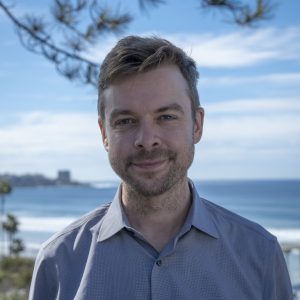
Jack A Gilbert
Principal Investigator
Professor Jack A Gilbert earned his Ph.D. from Unilever and Nottingham University, UK in 2002, and received his postdoctoral training at Queens University, Canada. From 2005-2010 he was a senior scientist at Plymouth Marine Laboratory, UK; and from 2010-2018 he was Group Leader for Microbial Ecology at Argonne National Laboratory, a Professor of Surgery, and Director of The Microbiome Center at University of Chicago. In 2019 he moved to University of California San Diego, where he is a Professor in Pediatrics and the Scripps Institution of Oceanography. Dr. Gilbert uses molecular analysis to test fundamental hypotheses in microbial ecology. He cofounded the Earth Microbiome Project and American Gut Project. He has authored more than 300 peer reviewed publications and book chapters on microbial ecology. He is the founding Editor in Chief of mSystems journal. In 2014 he was recognized on Crain’s Business Chicago’s 40 Under 40 List, and in 2015 he was listed as one of the 50 most influential scientists by Business Insider, and in the Brilliant Ten by Popular Scientist. In 2016 he won the Altemeier Prize from the Surgical Infection Society, and the WH Pierce Prize from the Society for Applied Microbiology for research excellence. In 2019 he was elected to the Philosophical Society of Washington. He also co-authored “Dirt is Good” published in 2017, a popular science guide to the microbiome and children’s health. He serves on the board of the Genomic Standards Consortium and is the primary investigator for various research ventures, including the Earth Microbiome Project, the Home Microbiome Project, the Gulf Microbial Modeling Project, the Hospital Microbiome Project, and the Chicago River Microbiome Project. Additionally, he founded BiomeSense Inc in 2018 to produce automated microbiome sensors.
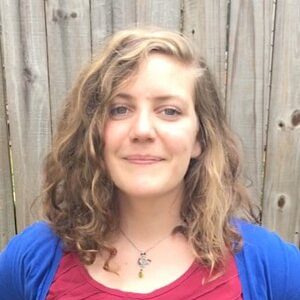
Sarah M. Allard
Assistant project scientist
Sarah received her PhD in Plant Science from the University of Maryland in 2014 and remained at UMD for a postdoctoral fellowship in the Maryland Institute of Applied Environmental Health. Throughout her career, she has maintained a focus on microbial ecology, food safety, and environmental sustainability. After receiving her B.A. in Biology from Haverford College in 2009, she began an ORISE fellowship in the Division of Microbiology at the FDA’s Center for Food Safety and Applied Nutrition. At FDA, she conducted environmental sampling for foodborne pathogen Salmonella enterica and evaluated a food safety biological control agent. As a graduate student at the University of Maryland, her dissertation work explored the influence of farming practices and environmental conditions on plant microbiomes in the complex agricultural environment. As part of the CONSERVE team based in the University of Maryland School of Public Health, she worked as a postdoctoral fellow and Assistant Program Manager. There, she developed a deep interest in water reuse for agriculture, and her research primarily focused on characterizing the microbiomes of nontraditional irrigation water sources including surface water and reclaimed wastewater. Sarah actively participated in farmer and community outreach, coordinated a multi-institution 2-year sampling effort, directed the CONSERVE Summer Intern Program, and led an educational trip to the Middle East. In her current role, Sarah is interested in exploring how microbiome research can be harnessed to support environmental sustainability and safe, productive food systems. She is also committed to helping students pursuing microbiome research prepare a diverse skillset to enable effective interdisciplinary research and communication. More information can be found on her website, and her publications can be seen here.
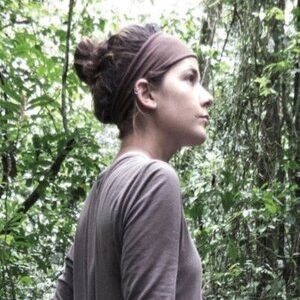
Holly Lutz
Assistant Project Scientist
Holly received her PhD in Ecology & Evolutionary Biology from Cornell University in 2016, where she studied malarial parasites in Afrotropical vertebrates. As a member of the Gilbert Lab and research associate at the Field Museum of Natural History (Chicago,IL), Holly uses both field and lab-based approaches to study symbionts in a diverse range of hosts, from Afrotropical bats, birds, and baboons to cephalopods, dolphins, and who knows what next. She is currently exploring connections between microbes and host phylogeny, ecology, and parasitism, and is also involved in research addressing the role of bacteria in forensic sciences and human disease. Additional interests include the evolution and ecology of malarial parasites and related apicomplexans, and biotic inventories of threatened ecosystems in the Afrotropics. More information and a list of publications can be found on her website.
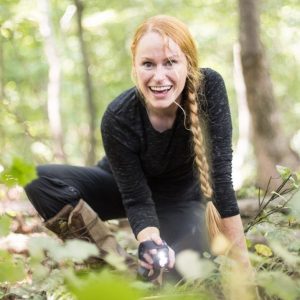
Megan S Thoemmes
Postdoctoral Scholar
Megan received her PhD in 2019 from the Applied Ecology department at North Carolina State University, under the direction of Dr Rob Dunn. Her work focuses on the microbes and arthropods found on and around mammal bodies, including those associated with humans, chimpanzees, and Key Largo woodrats. She is interested in how the built environment shapes species interactions and what factors drive differences among mammal structures, as well as how those differences affect individual health and well-being.
In the Gilbert lab, Megan primarily studies microbial selection on the International Space Station and the use of novel intervention methods to reduce antibiotic resistance and virulence in pathogens at Rady Children’s Hospital. Previous work includes the development of the Meet Your Mites project and work on the Wild Life of Our Homes project. Her publications can be found here.
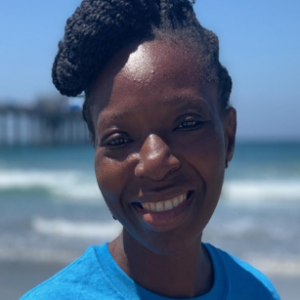
Gertrude Ecklu-Mensah
Postdoctoral Scholar
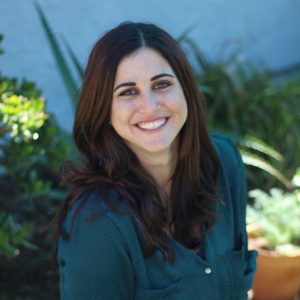
Rachel Diner
Postdoctoral Scholar
Rachel joined the Gilbert Lab in 2020 as an SD IRACDA fellow. She is broadly interested in how the environment and human activities impact coastal microbial ecosystems, and in turn, how these free-living and host-associated microbes affect human well-being. Rachel received her Ph.D. from UCSD’s Scripps Institution of Oceanography in 2019 and was a joint postdoctoral researcher with the J. Craig Venter Institute and the Southern California Coastal Water Research Project, where she used genomics-based techniques to investigate interactions between marine algae and bacteria. Prior to that, she received a B.S. in Biology from the University of Georgia in 2006 followed by a J.D. from the University of San Diego School of Law in 2009, where she studied coastal environmental law and policy and worked with local environmental groups to reduce coastal wastewater, stormwater, and plastic pollution. In 2013 she earned an M.S. in Marine Biology from San Francisco State University researching the effects of ocean acidification on calcifying marine algae (coccolithophores). In addition to her research, Rachel is a mother of two and is passionate about creating opportunities and inclusive environments for girls and women pursuing STEM careers. For more information, visit her website and list of publications.

Neil Gottel
Ph.D. Student
Neil graduated from the University of Illinois at Urbana-Champaign with a B.S. in Integrative Biology, where he studied the nitrogen fixing microbes living within the potential biofuel crop Miscanthus giganteus. He then studied the microbiome of various poplar tree species at Oak Ridge National Laboratory, then attended graduate school at the University of Texas Austin. He returned to Chicago to work at Argonne National Laboratory, and joined the Gilbert lab as a technician. After surviving the Technician Battle Royale, he became the lab manager at its University of Chicago location. He is now at UCSD, in Scripp’s marine biology graduate program. His publications can be found here.
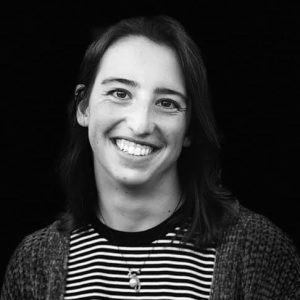
Emily Kunselman
Ph.D. Student
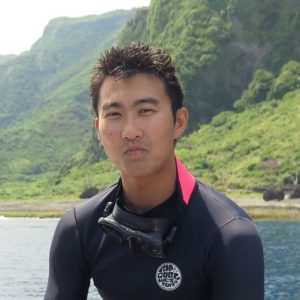
Sho Kodera
PH.D Student
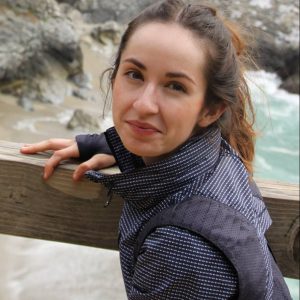
Carolina Carpenter
PH.D Student
Carolina graduated from UC San Diego with a B.S. in Marine Biology in 2015. Through 2020 she spent time in both academic- and industry research, discovering the kind of research she enjoyed (ecology, evolution, marine microbiology). She is now pursuing a PhD in Marine Biology at UCSD’s Scripps Institution of Oceanography and is interested in disturbance ecology and succession: specifically how microbes assemble and adapt to anthropogenic change.
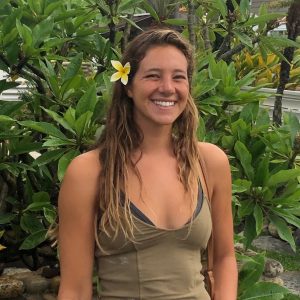
Natalie Grayson
PH.D Student
Natalie graduated from Princeton University with a B.S. in Ecology and Evolutionary Biology. While at Princeton, Natalie conducted an independent research project with the Hay lab on the relationship between sea cucumbers and adjacent coral communities. She is excited to continue exploring the big blue sea and dive deeper into the vast unknown’s of its microbial communities. Natalie will be a joint student between the Gilbert lab and Dr. Jeff Hasty’s lab, using synthetic biology tools to better elucidate trends in host-microbe interactions while earning her PhD in Marine Biology.
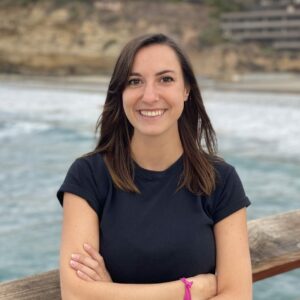
Kara Wiggin
PH.D Student
Kara graduated from Northeastern University in 2014 with a B.S. in Environmental Science. In 2019, she obtained her M.S. at Cal State Long Beach in Dr. Erika Holland’s Tox Lab, where she studied the detection and toxicity of microplastic pollution. She is now pursuing her PhD in Marine Biology at SIO. Kara is still pursuing questions related to microplastic pollution, but is now approaching her research from a microbiology perspective, studying the role of microplastics in pathogen transmission in the marine environment.
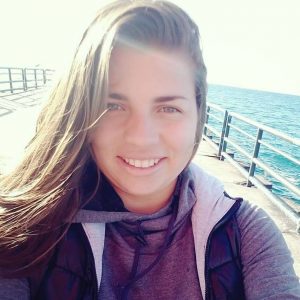
Mariana Salas Garcia
Lab Manager
Mariana graduated from Judson University with a B.A. in Biochemistry and Pre-Medicine. Since her undergrad, she has started working as a Microbiology lab assistant. This has grown her interest in the microbial world and the connection between the environment and human health. She joined the Gilbert lab in order to dive more into microbiome research. Mariana is hoping to bring all of her learning experience to the next step in Medical School in her hometown Costa Rica and develop more research there. Her publications can be found here.
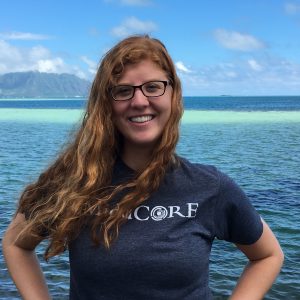
Kathryn Van Artsdalin
STAFF RESEARCH ASSOCIATE
Kathryn graduated from Middlebury College in May 2020 with a B.A. in Biology and minor in Math. As an undergraduate, she conducted research at NOAA studying the effects of ocean acidification on coral reef biodiversity, assisted in genetic analysis of marine organisms, and performed field surveys to monitor reef health in the Bahamas. She also interned in the Planetary Protection division at the NASA Jet Propulsion Laboratory monitoring microbial contamination on the Mars 2020 Perseverance rover. Kathryn is thrilled to join the dynamic Gilbert Lab and further explore the many applications of microbiology research. She hopes to attend graduate school in marine biology and is interested in studying coral diseases and reef ecology.
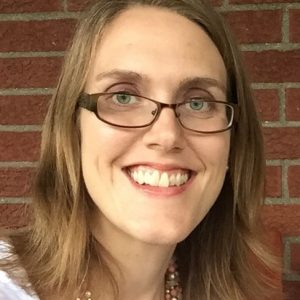
Mary Buschmann
Grant Writer and Coordinator
Mary holds a BA in Biology from Concordia University, Ann Arbor, MI, and a PhD in Cell and Cancer Biology from the University of Cincinnati. She did her postdoctoral research at the University of Chicago as a Ruth L. Kirschstein National Research Service Award Fellow, studying gut epithelial barrier function. Prior to joining the Gilbert group, Mary spent almost 5 years overseeing the Chicago Pancreatic Cancer Initiative at the University of Chicago, which was a clinical research program studying ways to use patient genomic, clinical, and demographic data and personalized cell line models to improve understanding and treatment of the disease. Concurrent with this, she managed the University of Chicago’s Department of Surgery grant and clinical research portfolio. In the Gilbert lab, Mary utilizes these experiences to coordinate collaborative research programs, prepare funding applications and research articles, and manage human research regulatory affairs for the group.
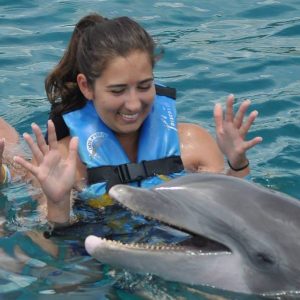
Megan Preovolos
Admin
Megan is a native San Diegan (born and raised!) and joined the Gilbert Lab January 2, 2019, before anyone else had actually arrived in San Diego. She is a UCSD Alumni, graduating with her BS in Cognitive Science in 2007. In the Gilbert Lab, Megan provides administrative support in many aspects of the lab, trying to do everything she can to make the lab members’ lives just a little bit easier. Outside of work Megan loves to travel, scuba diving, and train and fundraise with Team Challenge in honor of the Crohn’s and Colitis Foundation.
Previous Labmates
- Ali Sjaarda – University of Chicago
- Alyson Yee – MD Student, University of Chicago Medical School
- Anukriti Sharma – Research Scientist II, Department of Quantitative Health Sciences, Lerner Research Institute, Cleveland Clinic
- Beatriz Pelnaver – Assistant Professor, University of Illinois Chicago
- Ben Temperton – Senior Lecturer in Bioinformatics, University of Exeter, UK
- Bonnie Laverock – Research Fellow at Auckland University of Technology
- Cesar Cardona – Sr. Bioinformatics Cloud Engineer, Second Genome, CA
- Chris Marshall – Assistant Professor of Applied and Environmental Microbiology, Marquette University, WI
- Daniel Smith – Bioinformatics Programmer, Baylor College of Medicine
- Elle Hill – Research Assistant/Technician, University of Chicago & Argonne National Library
- Farhana Ali, MD – Fellow, Cincinnati Children’s Hospital
- Haitao Wang – Postdoctoral Research University of Greifswald, Germany
- Iratxe Zarraonaindia – Ikerbasque Research Associate, Department of Genetics, Physical Anthropology and Animal Physiology, Univ of the Basque Country UPV/EHU, Spain
- Jarrad Marcell-Hampton – Postdoctoral Researcher (Bridge to Faculty Program), University of Illinois Chicago
- Jessica Gallant-Swafford, MD – National Jewish Health
- Kassandra Brown – Princeton/Yale
- Kim M. Handley – University of Aukland
- Lauren Cralle – MD Student, University of Massachusetts Medical School
- Leron Perez – Graduate Student, Stanford School of Medicine
- Lisa Marotz – Microbiome Scientist, Native Microbials, Inc
- Madeline Kim – Medical Student at the Icahn School of Medicine
- Melissa Dsouza – Commense Health, Boston MA
- Miles Richardson – PhD Student, Columbia University
- Na Fei – Postdoctoral Research Chang Lab, University of Chicago
- Naseer Sangwan – Director of Microbiome Core, Cleveland Clinic
- Nicole Scott – Biota Inc
- Pamela Weisenhorn – Argonne National Laboratory
- Promi Das – Project Manager, Center for Microbiome Innovation
- Sean M. Gibbons – Assistant Professor, Institute for Systems Biology, University of Washington
- Simon Lax – Postdoctoral Research Associate, MIT
- Simon Thomas – Principle Researcher, Plymouth Marine Laboratory, UK
- Sophia Carryl – Postdoctoral Research, Harvard (Haber lab)
- Tom Kuntz – Postdoctoral Research, Harvard (Huttenhower lab/Microbiome Analysis Core)
- Victor S. Pylro – Argonne National Laboratory
- Wyatt Arnold – PhD Student, Yale University